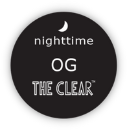Hey there awesome people who love The CLEAR CBD,
We’ve got a bit of news: The Clear CBD product line is taking a break.
But don’t worry, The CLEAR is still all about spreading good vibes and sharing the love for CBD on our main site, TheClearBrands.com.
The good news is, you’re already here.
Click around and explore all The Clear’s product lines, learn about our unique flavors, educate yourself with The Clear Blog, grab some swag or just reach out to say hello.
We have some exciting new products planned this year, and if you’re a fan of The Clear CBD products, you might like these too.
Stay tuned!
The Clear's One of a Kind Flavors
DAYTIME FLAVORS
Golden Goat emulates the popular cannabis strain. Known for sativa-dominance, along with mild sweet, spicy, and sour notes, Golden Goat is a full-bodied, tropical experience.

Sweet, tangy, and rich. Lime Sorbet begins with a lime-like bite and finishes with a touch of sweet cream. This flavor has an undeniable range and richness to it.

This flavor has the distinct, sweet, piney, notes associated with this daytime, sativa-hybrid strain. XJ-13 is instantly recognizable to Jack Herer aficionados.
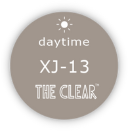
Lemon Haze is loud, tangy, and delicious. The sweet, sour notes burst onto the tongue immediately upon inhale and the impact of tasty lemon zest persists through exhale while lingering on the tongue.

ANYTIME FLAVORS
Potent Pineapple opens with a bright, recognizably tropical top note. This flavor lingers throughout the vaping experience with a juicy, tangy citrus finish.

Orange Cream hits with a bright, sweet citrus flavor. Sweet orange remains distinct while a rich creaminess covers your palate with a deliciousness reminiscent of a creamsicle on a hot summer day.
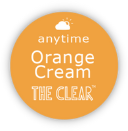
Blue Raz is one of our top selling all-natural flavors and is bright, sweet and jammy. It is as juicy and delicious as your favorite slushie.
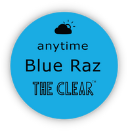
Banana Cream is impressively rich, while maintaining an elegant balance of banana and creaminess. Its highly nostalgic banana flavor finishes with a pleasantly smooth cream note.

NIGHTTIME FLAVORS
Grapevine is the juicy, sweet grape flavor that we all recognize. The essence of each pull is highly expressive, lingering, and succulent.
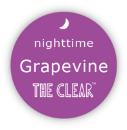
The remarkably ripe fruit flavor of Blueberry is enhanced by sweet, deep and sugary notes, creating an experience that is sure to bring to mind your favorite blueberry dessert.
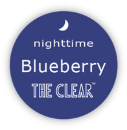
Our OG delivers high-octane gas and funk flavors for all our OG strain-lovers. The flavor provides a sweet, sour, and salty punch to the palate, with the peppery aftertaste that you expect.
